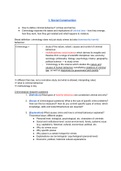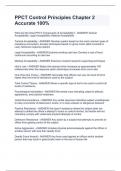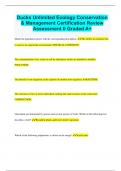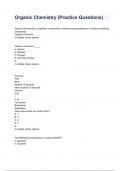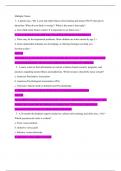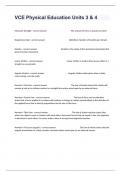Samenvatting
Extensive Criminology / Criminal Justice Summary from 2021 (weeks 1-12) - recommended for final Exam
- Instelling
- Tilburg University (UVT)
This document covers all topics which are discussed throughout the criminology course from weeks 1-12. It contains lecture and reading notes as well as an overview with all important theories summarised at the end of the document. if you want to buy them without the stuvia commission, contact m...
[Meer zien]
